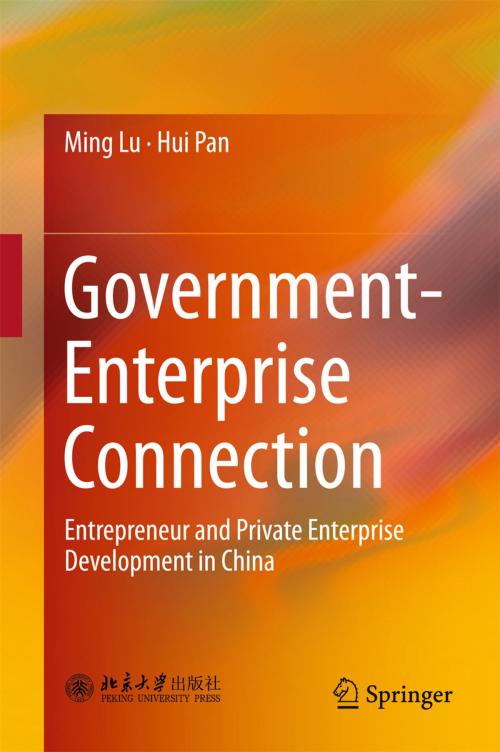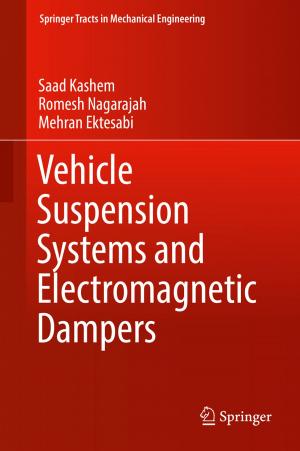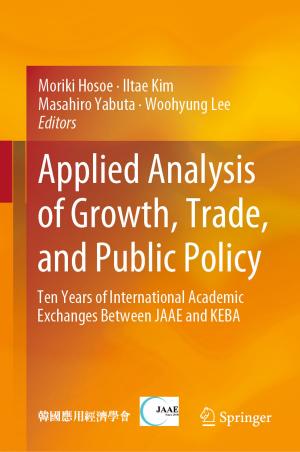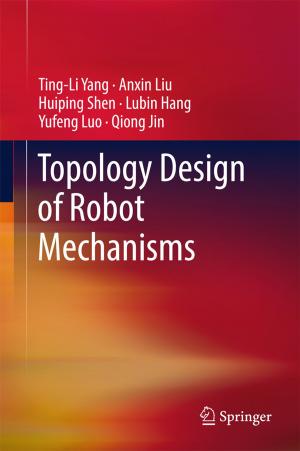Government-Enterprise Connection
Entrepreneur and Private Enterprise Development in China
Business & Finance, Career Planning & Job Hunting, Entrepreneurship, Entrepreneurship & Small Business| Author: | Hui Pan, Ming Lu | ISBN: | 9789812876584 |
| Publisher: | Springer Singapore | Publication: | October 26, 2015 |
| Imprint: | Springer | Language: | English |
| Author: | Hui Pan, Ming Lu |
| ISBN: | 9789812876584 |
| Publisher: | Springer Singapore |
| Publication: | October 26, 2015 |
| Imprint: | Springer |
| Language: | English |
This book is an empirical study on the relationship between private enterprises, entrepreneurs and the government in P. R. China. The two authors conducted a detailed survey of enterprises and entrepreneurs in Liuzhou, Guangxi Zhuang Autonomous Region, China. Although it was only conducted in a medium sized city, the survey provides a rare source of information on matched entrepreneur-enterprise pairs. It provides detailed information on management, performance, enterprise-government relationship, as well as entrepreneurs' personal information and measurements of various psychological parameters. With this first-hand information, the authors analyzed several interesting issues concerning enterprise-entrepreneur-government relationships. Readers will gain an understanding of the following topics:
- Why and how does China have such special enterprise-entrepreneur-government relationships?
- Do enterprises' political connections in the form of entrepreneurs' political status help improve the performances of these enterprises?
- Which of the surveyed entrepreneurs could become members of the People's Congress and the People's Political Consulting Conference?
- How do entrepreneurs feel when they are faced with greater government intervention?
- How will China move ahead in the ongoing reform and development in the light of the enterprise-entrepreneur-government relationship?
This book examines the way in which China's enterprise-entrepreneur-government relationship helps enterprises develop in a transitional market. In the appendix to this book, one of the authors, Ming Lu, provides evidence, based on data from listed companies, that having political connections can help enterprises enter the markets of provinces other than their place of registration. However, this political connection also distorts the market by giving the entrepreneurs more opportunities to develop their business. At the same time, those entrepren
eurs who face interventions from the government also shoulder greater costs in the form of loss of psychological happiness. The inference of this book is that at some point in the foreseeable future, China will gradually build its market system and integrate its domestic markets, so that private enterprises will no longer rely so heavily on their political connections.
This book is an empirical study on the relationship between private enterprises, entrepreneurs and the government in P. R. China. The two authors conducted a detailed survey of enterprises and entrepreneurs in Liuzhou, Guangxi Zhuang Autonomous Region, China. Although it was only conducted in a medium sized city, the survey provides a rare source of information on matched entrepreneur-enterprise pairs. It provides detailed information on management, performance, enterprise-government relationship, as well as entrepreneurs' personal information and measurements of various psychological parameters. With this first-hand information, the authors analyzed several interesting issues concerning enterprise-entrepreneur-government relationships. Readers will gain an understanding of the following topics:
- Why and how does China have such special enterprise-entrepreneur-government relationships?
- Do enterprises' political connections in the form of entrepreneurs' political status help improve the performances of these enterprises?
- Which of the surveyed entrepreneurs could become members of the People's Congress and the People's Political Consulting Conference?
- How do entrepreneurs feel when they are faced with greater government intervention?
- How will China move ahead in the ongoing reform and development in the light of the enterprise-entrepreneur-government relationship?
This book examines the way in which China's enterprise-entrepreneur-government relationship helps enterprises develop in a transitional market. In the appendix to this book, one of the authors, Ming Lu, provides evidence, based on data from listed companies, that having political connections can help enterprises enter the markets of provinces other than their place of registration. However, this political connection also distorts the market by giving the entrepreneurs more opportunities to develop their business. At the same time, those entrepren
eurs who face interventions from the government also shoulder greater costs in the form of loss of psychological happiness. The inference of this book is that at some point in the foreseeable future, China will gradually build its market system and integrate its domestic markets, so that private enterprises will no longer rely so heavily on their political connections.















